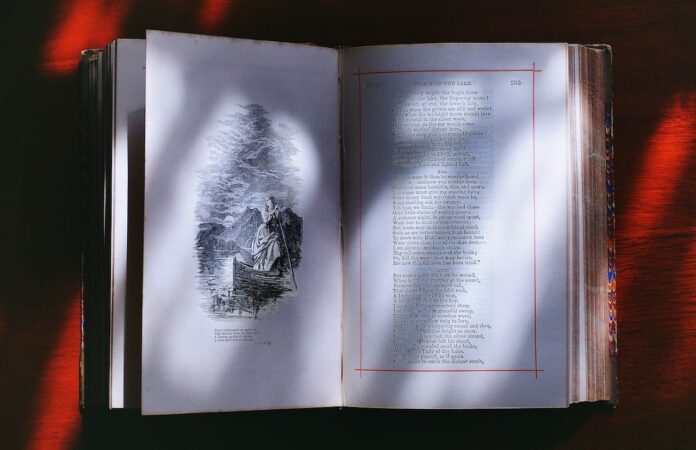
History, that intricate tapestry intertwined with the threads of events, decisions, and circumstances, has always fascinated us. Yet, the appeal of the unknown sparks curiosity – what if those events were arranged differently? What if pivotal moments unfolded in new ways?
Such queries have birthed a fascinating literary genre known as alternative history.
Alternate history, sometimes referred to as alternative history, stands as a subgenre within speculative fiction. Within this subgenre, significant historical occurrences take place, yet their resolutions differ from what unfolded in reality.
Constructed upon historical facts, these narratives introduce “What if?” scenarios concerning pivotal moments in human history. As a result, they depict outcomes that deviate greatly from the established historical records.
In this article, we embark on an interesting journey into the world of alternative history through an intricately curated list of the top 10 books that ingeniously reimagine the course of history.
Related: Top 5 Books On Thought Experiments, Top 10 Books For Curious Minds, 10 Must-Read Books on Simulation Theory, Top 5 Longest Books Ever Written

1. “The Man in the High Castle” by Philip K. Dick:
Philip K. Dick’s magnum opus, “The Man in the High Castle,” thrusts readers into a haunting alternate reality where the Axis powers emerged victorious in World War II. Within this intricately envisioned world, the United States is fragmented under the rule of Japan and Nazi Germany. Dick’s narrative mastery unfurls an evocative exploration of a reality molded by a decidedly different historical trajectory. Through the lens of enigmatic characters and intersecting fates, the novel delves deep into the consequences of divergence.
2. “Fatherland” by Robert Harris:
Robert Harris’ “Fatherland” plunges us into a 1964 where the chilling specter of Nazi Germany’s triumph in World War II casts a worrying shadow. In a meticulously reconstructed Berlin, a German detective unwittingly stumbles upon a conspiracy that inexorably unravels the precisely constructed façade of an superficially perfect regime. The novel’s vivid portrayal of a world where historical outcomes diverge intriguingly interweaves mystery, political intrigue, and an unsettling vision of a dystopian Europe.
3. “11/22/63” by Stephen King:
Stephen King’s “11/22/63” ingeniously melds time travel with alternative history, as a contemporary schoolteacher embarks on a mission to prevent the assassination of President John F. Kennedy. King’s signature narrative flair weaves a tapestry where the fabric of the past is intricately rewoven, leading to unforeseen consequences. With thorough attention to historical detail and a keen exploration of cause and effect, the novel immerses readers in a gripping tale that blurs the lines between reality and speculation.
4. “The Plot Against America” by Philip Roth:
Philip Roth’s “The Plot Against America” ventures into a speculative realm where the trajectory of American politics takes a dramatically different course. The narrative unfolds in an alternate 1940s America where aviator Charles Lindbergh secures victory in the presidential election, ushering in a disturbing era of anti-Semitism and fascism. Through the lens of a Jewish family’s experiences, Roth skillfully delves into the unsettling implications of political turmoil, all while maintaining a disturbing resonance with our own history.
5. “The Yiddish Policemen’s Union” by Michael Chabon:
Michael Chabon’s “The Yiddish Policemen’s Union” introduces readers to a world where Israel’s establishment never emerged, and a temporary Jewish settlement thrives in Alaska. Amid this unique setting, a homicide detective navigates the complexities of a puzzling case. Chabon’s seamless fusion of alternate history and noir detective fiction crafts a vivid narrative that not only poses what-if scenarios but also underscores the enduring resilience of cultural identity.
6. “The Years of Rice and Salt” by Kim Stanley Robinson:
Kim Stanley Robinson’s ambitious novel envisions a world where the Black Death wiped out most of Europe, leading to a history dominated by other civilizations. Spanning centuries, the book follows different characters as they reincarnate, offering a unique perspective on an alternate history shaped by different cultures, ideologies, and conflicts.
7. “The Peshawar Lancers” by S. M. Stirling:
S. M. Stirling’s “The Peshawar Lancers” transplants readers to a 21st century reshaped by a volcanic upheaval in the 19th century, resulting in a British-Indian Empire spanning continents. Against this backdrop of imperial grandeur, Stirling unfurls a tale of intrigue, diplomacy, and geopolitical maneuvering. The novel’s intricate detailing of an altered world order paints a vivid picture of a reality where historical tides took a profoundly different course.
8. “Dominion” by C.J. Sansom:
C.J. Sansom’s “Dominion” thrusts readers into a nightmarish version of history where Britain capitulated to Nazi Germany. Within this shadowy realm, a reluctant detective is enmeshed in a web of resistance and espionage. Sansom’s skillful narrative touches not only the depths of political machination but also examine the resilience of the human spirit amidst the darkest of circumstances.
9. “SS-GB” by Len Deighton:
Len Deighton’s “SS-GB” transports us to an occupied Britain following a divergent outcome in World War II. The novel navigates the intrigues of a Nazi-controlled London, as a Scotland Yard detective is thrust into a labyrinthine maze of espionage and resistance. Deighton’s meticulous attention to historical detail paints a haunting picture of an alternate reality.
10. “Roma Eterna” by Robert Silverberg:
In “Roma Eterna,” Robert Silverberg invites us to envision an alternative history where the Roman Empire endures and shapes the course of civilization across millennia. Through a collection of interconnected short stories, Silverberg unfolds a sprawling narrative that contemplates the profound ripples of an ancient empire persisting through the ages. The work’s scope invites readers to ponder the immeasurable impact of pivotal historical decisions on the trajectory of humanity.
Conclusion

Within the pages of these alternative history books, we find portals to uncharted realms where the boundaries of the past shift, leading to worlds both familiar and utterly transformed. Whether exploring the aftermath of divergent wars, traversing reimagined political landscapes, or navigating the intricate dance of historical revisionism, these top 10 books offer a mesmerizing sojourn through the corridors of imagination. Their narratives compel us to question the threads of causality that have woven our reality, prompting us to ponder the profound consequences of pivotal moments that might have been. Whether you are a history enthusiast, a speculative fiction aficionado, or simply a curious soul, these alternative history novels are poised to ignite your intellect and kindle riveting conversations about the tantalizing “what ifs” that shape the fabric of human existence.
Note: If you’re interested in similar articles, we’d recommend to check out:
- 10 Best Books About Artificial Intelligence
- Top 5 Best Dystopian Future Books to Read in 2024
- Top 10 Life-Changing Philosophy Books You Must Read
- Top 10 Books For Curious Minds
- 10 Books That Will Make You Rethink Reality
- 10 Must-Read Books on Alternate History
- Top 5 Books On Thought Experiments
- Top 10 Books For Curious Minds
- Top 10 Books To Spark Your Curiosity




























